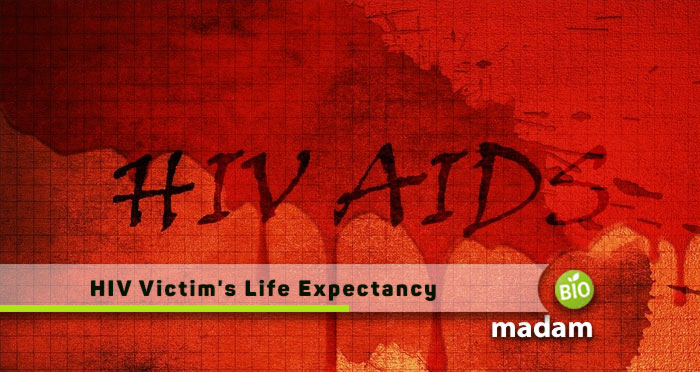People infected with HIV (human immunodeficiency virus) are more susceptible to infections, diseases, and other disorders. Viruses affect the cells that assist the body in fighting infection. Contact with HIV-infected bodily fluids, unprotected sex (sex without the use of a condom or HIV medicine to prevent and treat HIV), and sharing of injection syringes, using other’s shaving blades are the most common things that cause HIV.
In the long run, HIV can cause AIDS (acquired immunodeficiency syndrome). AIDS patients live roughly three years without treatment. Currently, there is no cure for HIV because the human body isn’t able to fight and kill the virus. You can never get rid of HIV once it’s in your body. Antiretroviral therapy (ART) helps people with HIV to live long and healthy lives.
3 Medical Stages of HIV
HIV Virus Infection Stage
Acute HIV infection occurs between 2–4 weeks of HIV infection. Fever, headache, and rash are common symptoms. HIV multiplies swiftly and spreads throughout the body in the acute stage. The virus assaults and destroys the immune system’s CD4 cells (CD4 T lymphocytes). The blood in HIV is exceptionally high during acute HIV infection, increasing the risk of HIV transmission. Starting ART at this period may provide significant health benefits.
Chronic HIV Infection Stage
Chronic HIV infection is the second stage (also called asymptomatic HIV infection or clinical latency). It still multiplies in the body but at a deficient level. Chronic HIV infection has no symptoms. Without ART, chronic HIV infection typically progresses to AIDS in 10 years or more, though it might be sooner. ART users may be at this stage for decades. While it is still possible to spread HIV during this stage, taking ART as directed and maintaining an undetectable viral load eliminates the chance of sex transmission to an HIV-negative partner.
AIDS Stage

AIDS is the last stage of HIV infection. The body cannot resist opportunistic infections because HIV has impaired the immune system. (Opportunistic infections are illnesses or malignancies that occur more frequently or are more severe in patients with weaker immune systems.) AIDS is diagnosed when the CD4 count is fewer than 200 cells/mm3 or when specific opportunistic infections are present. A person with AIDS has a high viral load and can easily transmit HIV to others.
How Long can a Person Live with HIV?
HIV-infected people’s life expectancies have increased considerably in recent years. Antiretroviral medication has made it possible for people with HIV to live long, healthy lives.
If you have HIV, it’s normal to question how long you’ll live. What does “treatable” mean in terms of a person’s lifespan and quality of life, notwithstanding what people tell you? How to solve this problem is both complicated and straightforward. Generally speaking, things are looking up. HIV patients can now expect to enjoy longer and better lives because of breakthroughs in antiretroviral medication. If treatment is started early and taken every day as prescribed, it will likely be effective and long-lasting.
People with HIV have a lower life expectancy than those without the virus because of various circumstances. As a result of these considerations, different persons will achieve different results.
A Few Facts and Tips to Increase Life Span of HIV Patients

- HIV therapy and high-quality medical care at early stage helps patients live longer.
- You prevent the CD4 cell count from becoming too low before beginning HIV treatment.
- HIV medication results after one year. According to research, people who respond well to treatment within the first year have a longer life expectancy.
- People with a CD4 count of a minimum of 350 and an undetectable viral load within a year have excellent long-term prospects for recovery.
- HIV-infected patients who inject drugs have a reduced life expectancy because of drug overdoses and bacterial infections.
- A person’s life expectancy is affected by various factors, including where you were raised, how much money you had, your education, social status, and more.
- Women tend to live longer than males.
- People who eat a well-balanced diet, engage in regular physical activity, avoid excessive alcohol or drug use, and maintain a socially connected lifestyle have a longer life expectancy.
Preventive Measure for HIV
- Use of Condoms: When having intercourse, the most efficient technique to avoid contracting HIV and other STIs is using a male latex condom. Make sure to use the condom before having any sexual intercourse. Birth control options such as tablets, injections, implants, and diaphragms will not prevent you from sexually transmitted infections (STIs).
- Take a Medical Examination: Take precautions to ensure that you and your partner are free of HIV and other sexually transmitted infections. Before having sex, discuss the test results with one another. Being infected with HIV is far more likely if you’ve got an STI. Having an STI in addition to HIV raises your risk of contracting HIV. An HIV test should be performed on everyone who has been diagnosed with an STI.
- Be faithful to a single partner: Having relationship with a single partner can reduce your risk of HIV and other sexually transmitted infections. Be faithful to each other after you’ve been tested for STIs. More partners increase your risk of contracting HIV and other sexually transmitted infections.
- Get a flu shot: A vaccine is ready for use to protect against HIV and hepatitis B, both of which are sexually transmitted infections (STIs). No HIV vaccine or treatment is available at this time.
- Do proper cleaning: Protect yourself from infection. The usual bacteria in your vagina are removed by dilating your vagina. Other sexually transmitted infections (STIs) and HIV may be more likely to develop as a result.

Final Words
Statistics should not be construed as a forecast. We have no idea what will happen during an infection because we have no control over the process. We can only make suggestions on how to reduce your risk of sickness based on the things that only you can change.
HIV patients must adhere to their treatment regimens to keep the virus or bacteria under control in their bloodstreams. Maintaining all other elements of one’s health and well-being is just as important as regularly working with a healthcare doctor.

Hello, I would like to introduce myself to you! I am Chelsea Rogers, an experienced blog writer for science articles, holding an MPhil degree. My enthusiasm to grab the best knowledge, let it relate to botany, zoology, or any other science branch. Read my articles & let me wait for your words s in the comment section.

